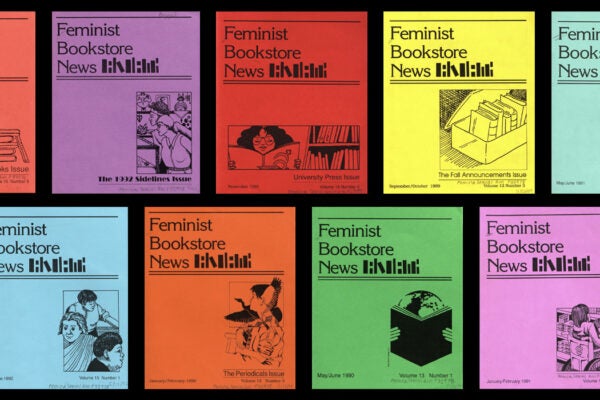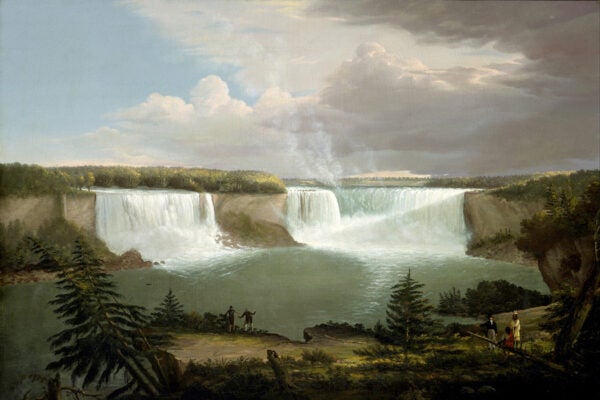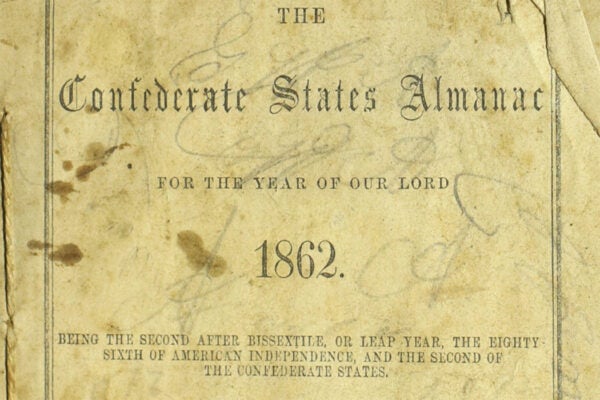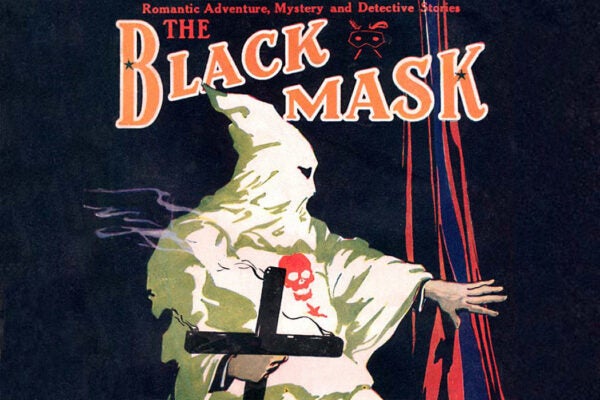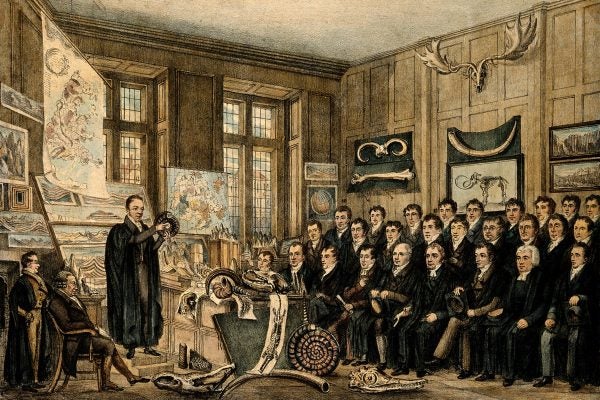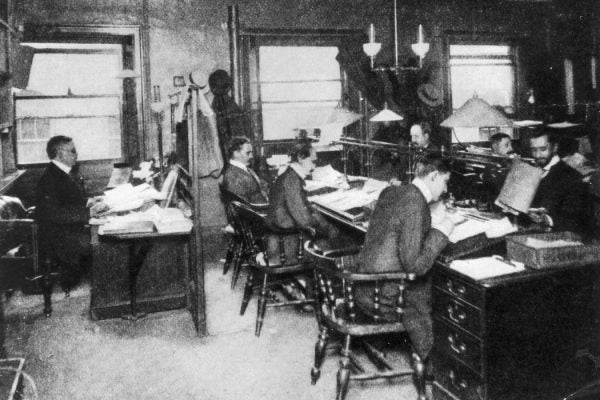Feminist Bookstore News by the Numbers
Now part of Reveal Digital, Feminist Bookstore News was a vital source of information (and gossip) amid a flourishing in publishing fifty years ago.
The Fashionable Tour: or, The First American Tourist Guidebook
Offering advice for visiting Sarasota Springs and other sights, Gideon Davison combined the travel narrative and road book to create a new type of travel guide.
On Harvests and Histories
Almanacs from the Civil War era reveal how two sides of an embattled nation used data from the natural world to legitimize their claims to statehood.
Mary Taylor, Charlotte Brontë’s Cool Friend
An independent traveler and business owner, Taylor inspired many of Brontë's own enterprises, including her relocation to Brussels.
When Enslaved Virginians Demanded the Right to Read
In 1723, a group of enslaved African Americans petitioned the Bishop of London to ensure that their children could attend school and learn to read the Bible.
Ismat Chughtai’s Quilt and Queer Desire
Long before India decriminalized homosexuality—in September 2018—the short story "Lihaaf" sparked outrage and a lawsuit for its depiction of same-sex, intergenerational intimacy.
The Gumshoes Who Took On the Klan
In the pages of Black Mask magazine, the Continental Op and Race Williams fought the KKK even as they shared its love of vigilante justice.
Why the “Black Playboy” Folded After Just Six Issues
Duke magazine aimed to celebrate the good life for the era’s growing Black middle-class.
The Invention of the Archive
Seventeenth-century scholars were horrified by how much ancient knowledge had been lost when the monasteries dispersed.
The Invention of Journalistic Objectivity
In the contemporary United States we tend to expect journalists to separate fact and opinion. It's actually a relatively new phenomenon.
